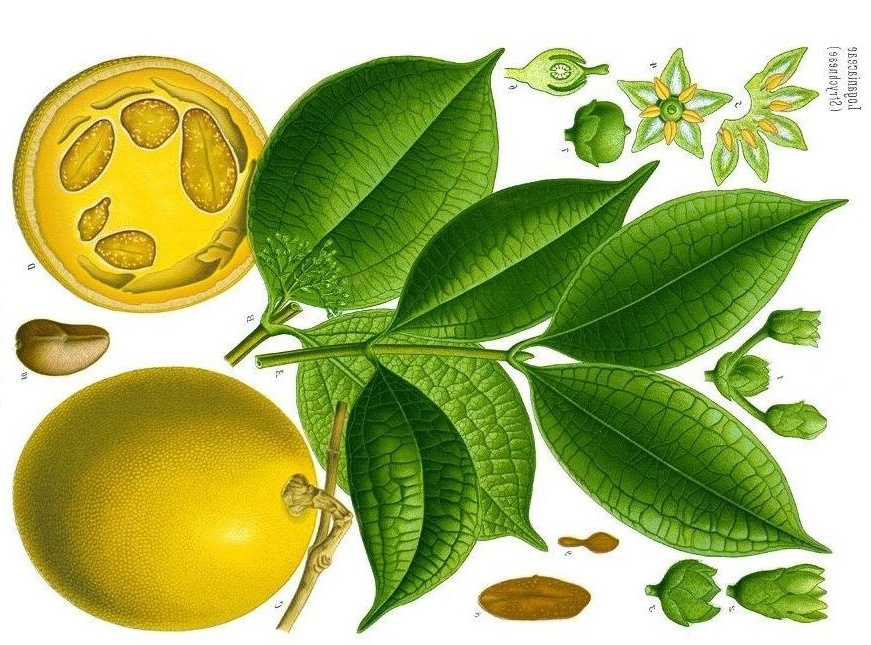Know Your Remedies: Ignatia Amara (Ign.)

Common Name: St Ignatius bean; Aguwasun; Igasud.
General Information
Prepare from the poisonous fruit of a tree native to the Philippines and parts of China. The remedy is no longer toxic when prepared in homeopathic potencies. Those needing Ignatia tend to be idealistic and strongly affected by sudden disappointment or grief. Symptoms arise from a conflict between feelings and reality and may result in hysteria. They are easily offended and have changeable or volatile emotions. Disappointments lead to bitterness, recriminations or emotional hardness. Heightened emotions lead to sighing and the sensation of a lump in the throat. Paradoxical symptoms occur such as nausea better for eating a heavy meal, or throat pain better for swallowing rough or hard food. There is an aversion to tobacco smoke, and tics, twitches, hiccoughs, or spasmodic movements are common. Perspiration is only on the face.
Emotions
- Changeable, unpredictable, hysterical, easily offended.
- Laughing then weeping in the same sentence.
- Weeping in sobs, away from company.
Grief
- Sighing with grief or disappointment
- Sensation of a lump in the throat
- Ailments following grief – eg. Numbness, paralysis, twitches, missed periods, hair loss.
Shock
- From grief or sudden disappointment
Headaches
- From grief, disappointment, or heightened emotion.
- As if a nail driven into head.
Hair Loss
- Following grief
Cough
- “Hysterical” cough from heightened emotions.
Insomnia
- Inability to sleep, or excessive sleep, following grief or disappointment.
For Pets
- Grief from early weaning, or the loss of a companion or offspring.
- Onset of complaints since grief.
- Refusal to come. Act as if offended or insulted.
Where do I find it?
Ignatia Amara (Ign) is available from our online store as a single remedy and is also included in the following Complexes (combination remedies): Grief and Loss; Emotional Shock; Panic Stop; Insomnia from Anxiety or Grief.
Important
While above self-limiting or acute complaints are suitable for home treatment also contact your healthcare provider during emergency situations or if symptoms worsen or fail to improve. Chronic or persistent complaints, which may or may not be mentioned above, require a different treatment and dosage protocol so are best managed by a qualified homeopath for good results.
Dosage Instructions (suitable for babies to adults)
For the home treatment of acute and self-limiting complaints take one pill or five drops of the remedy every 1 minute to 4 hours (1 minute for intense or emergency symptoms (plus seek emergency help), 4 hours for milder ones). Once an improvement is noticed, stop dosing and repeat the remedy only if symptoms return. If there is no improvement at all by three doses, choose a different remedy or seek professional guidance.
Note: Chronic symptoms or complaints require a course of professional treatment by a qualified homeopath to manage the changes in potencies and remedies that may be required.
More Information
Guidelines on which potency to use
From Past Masters
Homeopathy is a 200-year system of medicine. Early medical homeopaths recorded initial provings, remedy relationships, and their early experiences with each remedy in great detail.
These writings were then shared with others to advance homeopathic knowledge and practice.
Today, these same writings give a fascinating insight into the symptoms and clinical conditions for which each remedy was used.
The following extract, with minor editing, is one example.
Leaders In Homoeopathic Therapeutics by E. B. Nash M.D.
Ignatia Amara (Ign.)
Remedy of paradoxicalities. Head better lying on painful side, moody, goneness not > by eating, sore throat < by swallowing, thirst during chill, face red during chill, etc.
Sad, sighing, changeable, moody disposition.
Twitching or spasms, or convulsions from exciting or depressing emotions, fright, etc.
All-gone, weak, empty sensation in stomach not > by eating.
Anal troubles (piles, prolapsus, soreness and pain after stool, pains shooting up into abdomen).
Adapted to emotional, hysterical subjects.
Modalities: < slight touch, smoking, coffee; > lying on painful side; hard pressure; profuse watery urination.
Cough; dry, spasmodic; not relieved by coughing; the longer he coughs the more the irritation to cough increases.
Pain; in small circumscribed spots; over-sensitive (Coff., Hep.).
In most cases Ignatia should be given in the morning.
Ignatia bears the same relation to the diseases of women that Nux does to bilious men.
* * * * *
Ignatia is another one of the long list of our nervous remedies.
Its peculiar mental symptoms, like those of Aconite, Chamomilla, Nux vomica and many others, are most characteristic. Like these remedies, it seems to exalt the impressionability of all the senses; but unlike the others, it has in it a marked element of sadness, and disposition to silent grieving.
Anyone suffering from suppressed, deep grief, with long drawn sighs, much sobbing, etc., and especially if inclined to smother or hide that grief from others, is just the subject for this remedy. She desires to he alone with her grief. Sighs much and seems so sad and weak. The weakness is complained of right in the pit of the stomach. She feels weak, faint, and “all gone” there.
Another equally characteristic state or mind is a changeable mood. No remedy can equal Ignatia for this. Aconite, Coffea, Nux moschata and a few others have it, but Ignatia in the greatest degree. And so this remedy becomes one of our best in the treatment of hysterical affections.
The patient is at one time full of glee and merriment, to be followed suddenly with the other extreme, of melancholy sadness and tears, and so these states of mind rapidly alternate.
Again, we have in Ignatia an impatient, quarrelsome, angry mood (but not to the degree of Chamomilla) at times.
Again the Ignatia patient is, because of her excessive impressibility, easily frightened. Here it becomes one of our best remedies for the effects of fright, vying with Aconite, Opium and Veratrum album.
In short, Ignatia may justly be termed Pre-eminently the remedy of moods.
Aside from its mental symptoms, it is a great nervous remedy. Its acts upon the spine as decidedly as Nux vomica, affecting both motor and sensory nerves.
It is one of our best remedies for spasms or convulsions, and is especially adapted to spasmodic affections originating in mental causes, as after fright, punishment of children or other strong emotions.
In one case of puerperal convulsions, other remedies having failed to do any good, the consulting physician while observing the patient during one of the spasms noticed that she came out of it with a succession of long drawn sighs. He inquired if the patient had had any recent mental trouble, and learned that she had lost her mother, of whom she was exceedingly fond, and whom she had mourned for greatly, a few weeks before. Ignatia 30th quickly cured her.
Again, short of actual convulsions, Ignatia has, in a most marked degree, twitchings all over the body, hence it becomes one of our best remedies for chorea, especially if caused by fright or grief on the mental side, or teething or worms on the reflex irritation side.
There is only one remedy that comes near it for these twitchings and that is Zincum metallicum. Of course, Agaricus, Hyoscyamus, Cuprum met., etc., come close, and some might think are equal. Veratrum viride, when better known, may lay claim to high rank here.
Ignatia is sometimes recommended for paralysis, but will be found, I think, exceptionally useful, and that mainly in hysterical cases, which are not of a very dangerous character.
Like Aconite, Chamomilla and Coffea, Ignatia is over-sensitive to pain.
Ignatia, like its male partner, Nux vomica, is a great remedy for headaches of nervous, especially hysterically nervous, subjects. That would be about the same as saying, that while Nux vomica is adapted to nervous men Ignatia is the same for women, which is quite true.
You will remember that hysterical, nervous headaches are often one-sided. Hence Ignatia is such an efficient remedy for headaches as expressed in these words: “Headache as if a nail there driven out through the side of the head relieved by lying on it.” These headaches come on in highly nervous and sensitive subjects, or in those whose nervous systems have suffered from over-anxiety, grief or mental work.
The ever-changeable and contradictory symptoms so characteristic of the drug shows here as elsewhere. Not only does the pain in head change locality but at one time the pain will come on gradually and abate suddenly (like Sulphuric acid ), or, like Belladonna, it will come on suddenly and abate as suddenly as it came.
Like Aconite, Gelsemium, Silicea, and Veratrum album, the headache often terminates with a profuse flow of urine. That is often the case in headaches of nervous hysterical women. (Lac defloratum, profuse flow during headache).
Finally the headaches are aggravated by coffee, smoking, the abuse of snuff, inhaling tobacco smoke, alcohol, close attention, from pressing at stool, and, while it is sometimes relieved while eating, is aggravated soon after.
The Ignatia headache is sometimes accompanied by hunger like that of Psorinum. It is also < by cold winds, turning head suddenly, stooping, change of position, running, looking up long, moving the eyes, noise and light.
It is ameliorated by warmth, lying on it, soft pressure, external heat and profuse flow of limpid urine.
Ignatia has some strong throat symptoms. In the first place it has the so commonly observed symptom called “globus hystericus,” or as if a lump came up from the stomach into the throat as if she would choke. She swallows it down but it comes right back and is very distressing. It is especially apt to come if she gets grieved and wants to cry.
These are of course purely nervous sensations, but Ignatia goes further, and also cures real serious affections of the throat like tonsillitis and diphtheria. In these cases the real characteristic symptom is, that the pain and suffering in the throat is relieved by swallowing or is worse between the acts of deglutition. (Capsicum).
A very peculiar symptom for such troubles, for such cases are generally aggravated by swallowing, hence we would not expect to frequently find a case in which this would be the remedy; but such cases do arise occasionally and baffle us if we haven’t the remedy. Here is where Homœopathy, as we say in base ball, “scores some of its best runs,” and the satisfaction of curing such a case with an unusual remedy is, to say the least, very gratifying to him who performs the cure.
With Ignatia cases, in addition to the aggravation when swallowing liquids and relief from swallowing solids. This is like Lachesis, you remember, but is the reverse of Baptisia, which can swallow liquids only; the least solid food gags. It is necessary to keep these correspondences and opposites in mind, for it often enables us to make what are called “snap shot” prescriptions and save much time, study and suffering.
Some of the particularly valuable “guiding symptoms” of Ignatia, in addition to those already noticed, are “extreme aversion to tobacco smoke.” This is a general aversion and aggravates many, many complaints. “Weak, empty, gone feeling at the pit of the stomach.”
In the case of Ignatia this symptom is apt to be accompanied by a disposition to sigh or take a long breath. Two other remedies have this symptom of goneness in the stomach as prominently as Ignatia. They are Hydrastis and Sepia. The other symptoms must decide between them.
This weak feeling in the stomach in Ignatia is sometimes described as a feeling of flabbiness, as though the stomach hung down relaxed. Ipecacuanha has a similar feeling. Sometimes we come across very severe cases of gastralgia in women of hysterical tendencies. Here this remedy is the first to be thought of.
Ignatia has as positive action upon the anus and rectum as does Nux vomica. Prolapsus of the rectum is marked. (Ruta graveolens).
Like Nux vomica it has frequent desire for stool, but in place of stool, or with it, comes the prolapsed rectum. The patient is afraid to strain at stool, to stoop down or lift, for fear of the prolapsus. A contractive sore pain follows after a stool and lasts for an hour or two. This is like Nitric acid, which has the same symptom only after a loose stool.
There is also some pain in anus without reference to stool. Dunham, that prince of observers, gave us the characteristic: “Sharp pains shooting upward into the rectum.” (Sepia has similar pains in uterus). It is a gem, and has often been verified. So we see that Ignatia is one of our important anal and rectal remedies.
This remedy is also very unique in its fever symptoms. There is no disease in which we are better able to show the power of the potentized remedy to cure, than intermittent fever. Chronic cases that have resisted the Quinine treatment for years are often quickly and permanently cured by the 200th and upwards.
The following symptoms indicate Ignatia: 1st. Thirst during chill and in no other stage. 2d. Chill, relieved by external heat. 3d. Heat aggravated by external covering. 4th. Red face during the chill. Here are four legs to the stool, and we may sit upon it in perfect confidence. No other remedy has thirst during chill and in no other stage.
In Nux vomica, you will remember, the chill is not relieved by the heat of the stove, or the bed, and during the heat Nux vomica must be covered, as the least uncovering brings back the chill. So we see that notwithstanding the alkaloid of both drugs is strychnia they differ widely when we come to apply them to the cure of the sick.
The red face during chill led me to the cure of an obstinate case, and after I noticed the red face I also noticed that the boy was behind the stove in the warmest place he could find. The 200th promptly cured.
Two other cases in the same family, at the same time, and from the same malarious district, were cured, one by Capsicum, 200th. the other by Eupatorium perfoliatum, same potency. The former had chill beginning between shoulders, in the latter the chill in the A. M., great pain in bones before, and vomiting of bile at the end of chill.
I do not know but I have mentioned these three cases before; but it will bear repeating, for it illustrates the efficacy of potencies in obedience to our great law of cure. can any reasonable man doubt such evidence?





